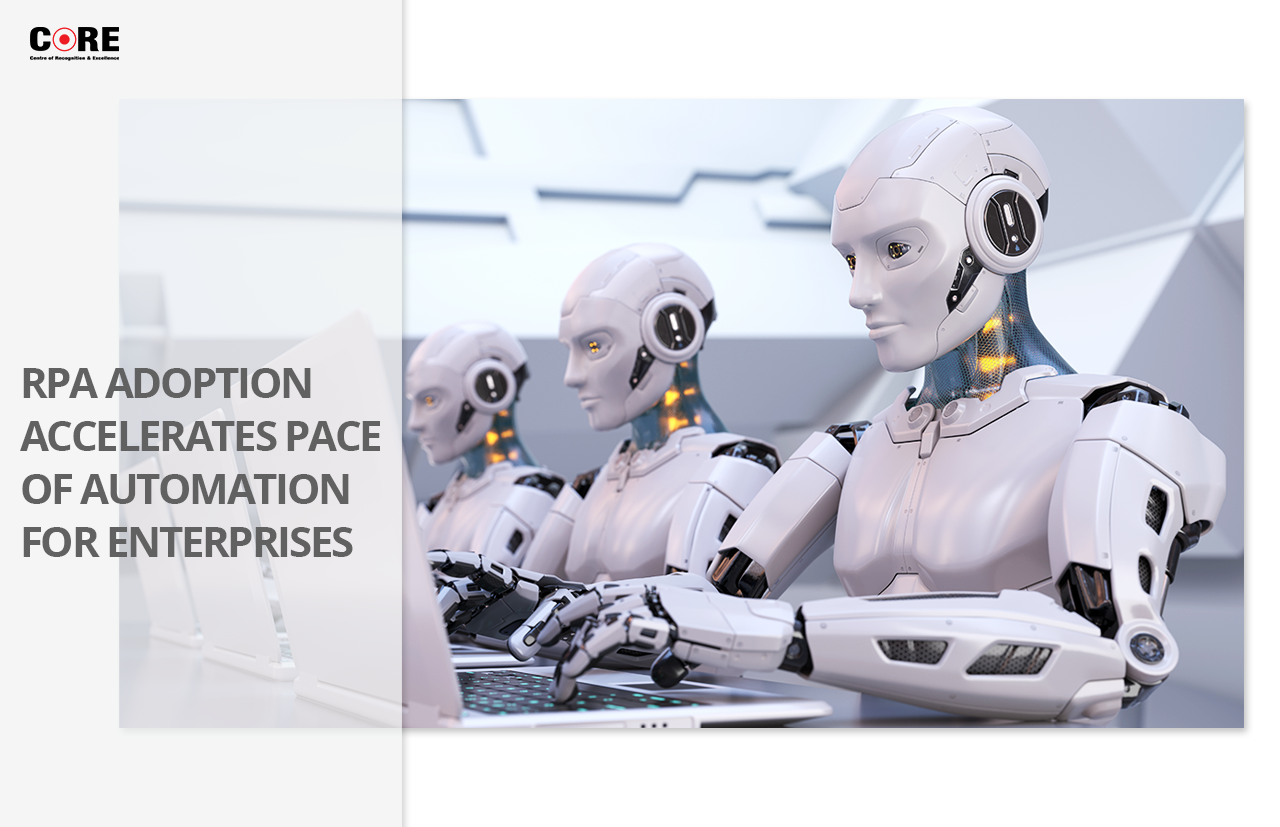Enterprises are set to invest more in RPA and intelligent automation to increase employee productivity and improve the customer experience.
Robotic Process Automation (RPA) was already experiencing strong growth in 2019 and early 2020. By the middle of 2020, the pandemic only accelerated the pace of automation. In wake of COVID-19 outbreak and organisations supporting remote working, IT leaders are gearing up to use twice as many bots as they used at the beginning of 2020.
Leading businesses are rapidly moving towards technological advancements in their digital journey to improve operational efficiency and customer service. Enterprises, across sectors, are relying more on their CIOs to help them in automating the processes to reduce costs, improve efficiency, and reduce the threat of security breaches.
That said, the adoption of RPA is on the rise both in the private as well as government sectors as the software bots aids in automating highly repetitive and routine tasks. Enterprises are set to invest more in RPA and intelligent automation to increase employee productivity and improve the customer experience.
While a majority of the organizations have already deployed RPA some are actively scaling, while some are actively evaluating automation. According to a report, organisations already using RPA are implementing it broadly across several business units as opposed to focusing on a single department,
With organizations clearly understanding the benefits of automating their processes, more so in the current- times where a majority of the employees are working remotely, RPA tools are being widely used in sectors such as financial services, healthcare, retail, and human resources.
According to Brandessence Market Research, “The global demand for global RPA market size in terms of revenue was worth of USD 2715.75 Million in 20-20 and is expected to reach USD 18339.95 Million in 2027, growing at a CAGR of 31.07% from 2020 to 2027.”
CIOs, who have realised the higher-level value of RPA, have strategised their IT policies by deploying the same. The major advantage in the adoption RPA is it simply frees employees from repetitive tasks thus saving time and money and elevating employee engagement. Another important benefit of adopting RPA is the reduction in staffing costs and process turnaround time.
IT leaders have realised that implementing intelligent automation not only helps improve operational efficiency it also enables organisations to scale with ease to create new value and provide better customer service.
Organizations process and generate more and more data and deal with a variety of sensitive data. Processing of sensitive data by the human workforce, which at times could lead to data theft and accidental disclosure, always bother the IT heads. The onus thus lies on them to adequately protect the data and comply with applicable industry and regulatory requirements while adopting RPA.
Technologies such as AI, ML, and chatbots will only accelerate the pace of automation in these critical and uncertain times,” says an IT head of a healthcare startup. Looking at the speed with which organisations are speeding up in automating their processes, RPA adoption could double in 2021.


